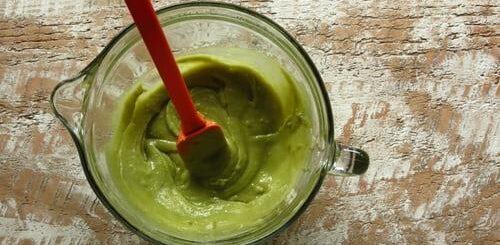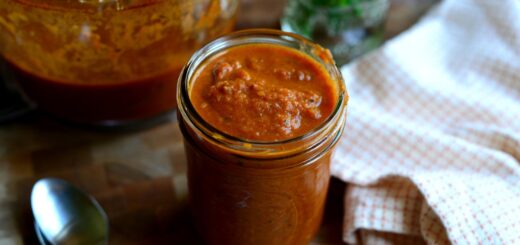Honey: The benefits of honey and properties

Human beings have taken the consumption of honey into great consideration since ancient times, so there is evidence of harvesting this food that dates back to 8000 BC. The Egyptians kept offerings of honey to the gods, while the Greeks, Chinese and Romans managed to obtain medicinal uses for it by using it to heal wounds as well as in the correct treatment of fevers and stomach and digestive problems. Currently this food enjoys a high fame related to its countless healing properties and even miraculous, but is this scientifically proven? A question that we will solve next and we will be able to verify which of its properties have been proven by science .
Just as Aloe Vera is a plant with important properties, honey is attributed large amounts of healing properties, from its ability to reduce ulcers to the regulation of blood sugar levels . All this while ensuring that it is capable of preventing cancer or minimizing heart disease; Not to mention that it calms coughs , relieves sore throats, increases sports performance and works as an aphrodisiac and antibiotic food . So honey has been put to the test and these are the results of the various studies, to attribute its properties in a scientific way.
The benefits of honey and properties
Although honey claims to be a quarter sweeter than the same table sugar (+25%), it is important to remember that it is mainly made up of water (18%), while glucose and fructose manage to reach averages of up to 80%. %. But more than 150 compounds in tiny amounts are also found in its formula that are responsible for the vast majority of its medicinal, healing and nutritional properties that are attributed to it. All these compounds and the same configuration will depend on the different flowers from which the honey comes, which is why honeys are obviously not the same and they vary both from one locality to another and depending on the season of the year.
A rich source of nutrition with vitamins, minerals and compounds
Its mineral contributions where it stands out in potassium, as well as vitamins where folic acid, vitamin C and vitamin B9 are mostly present and a gigantic amount of derivative compounds, enzymes, organic acids, polyphenols, carotenoids, amino acids as well as aromatic compounds; They endow it with a great capacity to be an extremely nutritious food . These phenolic compounds are responsible for many of the medicinal and healthy functionalities that characterize honey.
These properties have managed to be demonstrated at the laboratory level or by means of laboratory animals , achieving qualities both in vitro and in vivo. And in many cases they have been able to carry out clinical studies using people. The results of this section have been encouraging and even amazing when verifying the contributions of honey to nutrition and therefore to be classified as a food that enjoys an excellent rate of nutrition.
Honey and its anti-inflammatory and antioxidant functions
Its potential as an antioxidant compound has also been demonstrated (in vitro – in vivo), the multiple studies carried out have allowed to obtain results where it is possible to ensure that it is a great food to stimulate the defensive systems of tissues in laboratory animals , that is to say that it maintains extensive antioxidant properties. And that the consumption of honey, either unilaterally or combined with other traditional therapies, is capable of generating a significant increase in the antioxidant capacities of living beings.
Likewise, its anti – inflammatory effects are also demonstrable through many studies, this property is exerted by honey through various mechanisms and using various agents that are capable of producing substances that have the quality of being blockers of pro-inflammatory substances, in addition to its obviously antioxidant quality. further enhances its anti-inflammatory power by promoting the reduction of oxidative stress in tissues.
Honey consumption also increases the production of “ T and B” type lymphocytes , as well as many types of antibodies and various cells responsible for protecting you from external attacks to which the body is indiscriminately exposed at all times. This immune response is perfect to give immunity to cellular tissues and to achieve the necessary production of monocytes, neutrophils and eosinophils. All this together provides the body with an excellent immune system and also stimulates the production of short-chain fatty acids, which maintain a confirmed immune-modulating activity for the benefit of health.
Decrease in cardiovascular problems
Cardiovascular problems are responsible for a large number of diseases and deaths worldwide and its extent and its consequences of a bad diet have been proven endlessly. Well, honey allows a significant reduction of harmful cholesterol in those patients suffering from hyperlipidemia. Therefore, this improvement in the lipid profile of patients affects directly and indirectly in reducing the risk indexes of suffering from cardiovascular diseases.
Its antimicrobial and preventive effect of gastric ulcers
The demonstration that honey is a powerful inhibitor of the growth of bacteria is more than proven and it is that at the same time it categorically stops the replication of many pathogenic agents, fungi and of course viruses , which gives it antimicrobial properties that start of its perfect enzymatic activity and of many compounds where acids, terpenes and many alcohols stand out that also support this antibacterial activity.
In laboratory mice, an excellent activity against ulcers has been confirmed , both from a preventive point of view and from a curative point of view, thanks to the increase in prostaglandins that act as protectors of the gastric mucosa , excellently inhibiting ulcers. various gastric secretions and therefore developing a categorical prevention of the formation of annoying peptic ulcers.
Cancer and diabetes as a point of debate for honey
Various studies have been carried out using laboratory mice and it has been determined that various honeys are capable of playing an important role in the regulation of blood glucose levels. But scientists still have certain caveats by ensuring that honey is also metabolized in the same way as harmful table sugar, so there are conflicting opinions regarding this section.
Regarding its anticancer properties , honey has shown an effect against cancer cells in certain parts of the body (skin, uterus, breasts) but only in the Pietri plate and for the moment human trials are not in sight or are in progress. pending status. Despite this, honey is a food that promises a lot both as an anticancer agent and as a preventive of various heart diseases thanks to its high levels of antioxidants.











